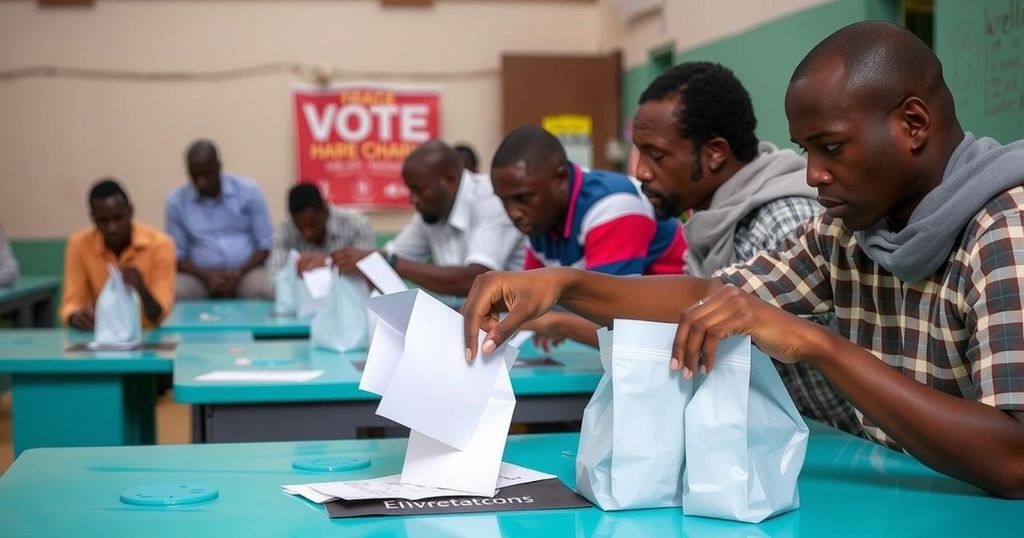Chad’s Elections: A Call for Boycott Amidst Political Discontent

Voting has begun in Chad, but opposition parties are urging a boycott, claiming the elections perpetuate the ruling party’s power. President Deby calls it a step toward democracy, yet many citizens feel indifferent about its outcomes. Initial voting statistics show participation from military and nomadic tribes, while analysts raise concerns over electoral integrity amid ongoing socio-economic challenges.
Voting has commenced in Chad amidst calls for a boycott from opposition parties, which denounce the elections as a façade aimed at consolidating the ruling party’s authority. President Mahamat Idriss Deby Itno has positioned these elections as a pivotal step towards democracy, yet opposition factions contest their legitimacy, urging citizens to abstain from participating. Preliminary estimates indicate that members of the military and nomadic tribes have begun voting, with broader participation expected on Sunday to elect a national parliament along with regional and local councils.
Chad, a nation of approximately 20 million people, is experiencing a crucial political moment as it holds elections under the shadow of governmental discontent. The ruling party faces fierce opposition and skepticism among the populace, who express doubts regarding the efficacy and fairness of the electoral process. In light of socio-economic issues, including rising living costs and widespread corruption, the populace appears disengaged, believing that the elections will not yield substantive change. Notably, these elections follow a tumultuous transition from a long-standing authoritarian regime, with President Deby having taken power after the passing of his father, the late Idriss Deby Itno.
In summary, the elections in Chad reflect significant political tensions, with opposition parties advocating for a boycott and citizens expressing disillusionment towards the process. As military personnel and selected groups participate, broader public engagement remains uncertain, reportedly due to a prevailing belief in the inevitability of the ruling party’s victory. The elections represent a critical junction in Chad’s path towards democracy, amid allegations of bias and systemic corruption.
Original Source: www.aljazeera.com







